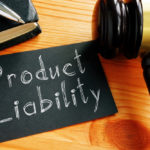September 2016 Subrogation Newsletter
SUING THE KING: State Sovereign Immunity And Tort Liability In All 50 States
Sovereign or governmental immunity concern themselves with the various legal doctrines or statutes that provide federal, state, or local governments immunity from tort-based claims, as well as exceptions to or waivers of that immunity. Generally, a state government is immune from tort suits by individuals under the doctrine of sovereign immunity. Local governments, municipalities, and political subdivisions of the state are immune from tort suits by virtue of governmental immunity, because the state grants them immunity, usually in its Constitution. This article and its accompanying chart deal with state governmental immunity and liability and discusses the changing face of liability of state governments and employees and the remedies available to victims of government torts and their subrogated insurance companies.

Successful Product Liability Subrogation Is No Accident
Recovering property damage claims related to a product liability defect are some of the most complicated, challenging, and difficult recoveries to make in the field of subrogation. The success or failure of your subrogation efforts depend on the amount of time and energy you are willing to commit. Actually, you often have an advantage because you get the first crack at compiling investigation evidence long before the manufacturer even knows one of its products has caused damage. You can portray your claim in the best possible light, early in the proceedings. In order to do so, you should take note of key pieces of information that can be gathered in the early hours of a property loss.
Connecticut Supreme Court Grants Workers’ Compensation Carrier Right To File Third-Party Action
Until recently, Connecticut’s Workers’ Compensation Subrogation Statute, § 31-293, labored under the judicial interpretation by which an employer was allowed to file a third-party action, but its workers’ compensation carrier was not. Subrogated carriers had to hope that the employee or employer was willing to bring an action because if the employee didn’t file, and business conflicts or other reasons led the employer to decide not to file, the carrier was out of luck. That all changed with the 2016 Connecticut Supreme Court decision in Pacific Insurance Company, Limited v. Champion Steel, LLC, 2016 WL 503057 (Conn. 2016).
SUBROGATION MAGIC: Creating Something Out Of Nothing - Subrogating MCS-90 Endorsements
In 2010, researchers at the University of Michigan hypothesized that it is theoretically possible to conjure particles from a complete vacuum under the right circumstances. Performing such a feat in the world of subrogation might seem improbable, but subrogation theory has become subrogation law where MCS-90 Endorsements are concerned. The familiarity with MCS-90 Endorsements could mean the difference between an uncollectable default judgment and complete reimbursement. Dealing with uninsured and underinsured negligent parties can be a daily occurrence for the transportation subrogation professional. This article will introduce you to a tool that can be utilized to maximize recovery potential of your subrogation claims.
